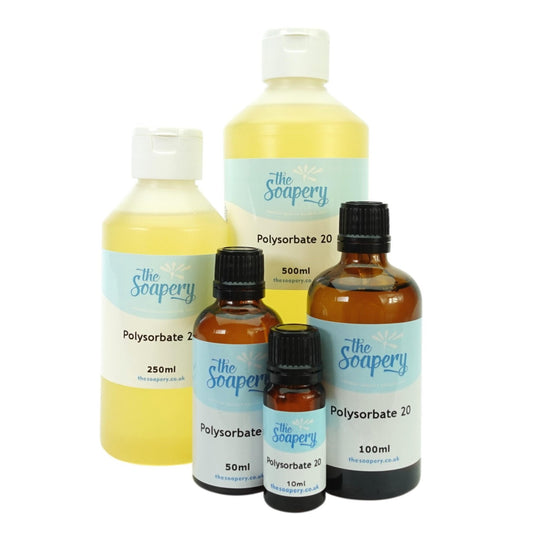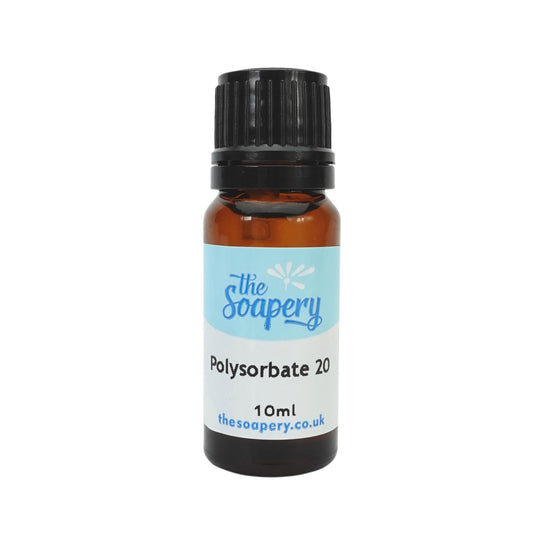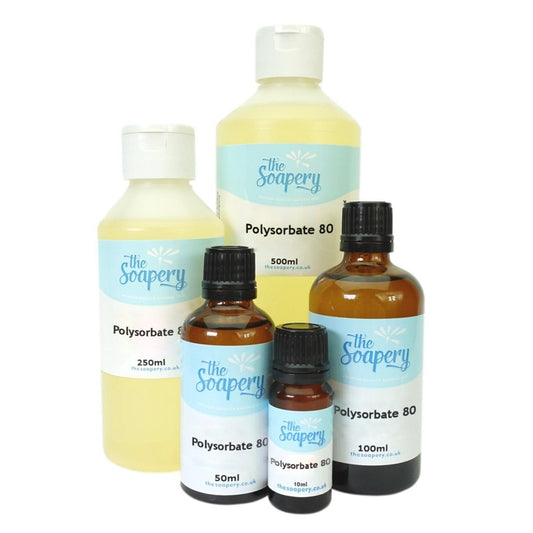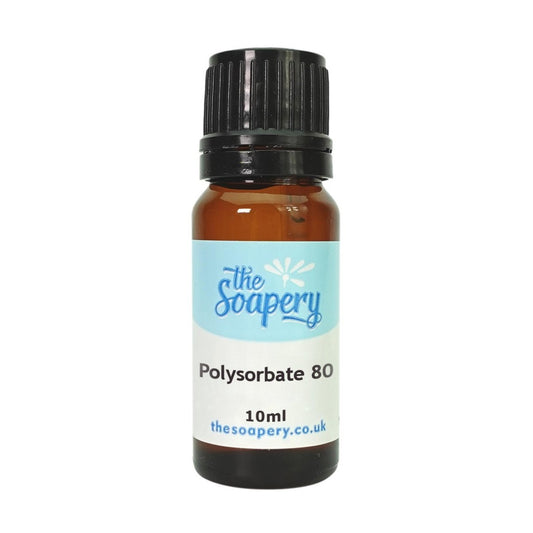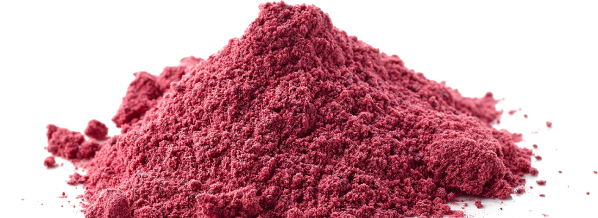
Why choose The Soapery?
-
Free Mainland UK Shipping
Get your ingredients quickly at no extra cost.
-
Same Day Dispatch*
Order before 3pm to have your package sent then and there.
-
Low Pricing
No glossy marketing or false promises mean big savings.
-
Ethical Suppliers
No qualms here. Our ingredients are ethically and sustainably sourced.
About Solubilisers
Working with oil and water? We’ve got the perfect solution. Make the insoluble soluble with solubilisers. These go-to products help oils dissolve in water – resulting in clear, stable formulations for everything from room sprays to bath bombs.
Learn More About Cosmetic Solubilisers
Perfect your most complex formulations.
Creating a stable cosmetic formula can be tricky at the best of times - but downright difficult when it comes to water and oils. Luckily, we’ve got you covered. With the right solubiliser in your corner (or crafting cupboard), mixing up oil-in-water recipes made to last is as simple as one, two, three. Why not try it for yourself? Browse our hand-selected range of solubilising agents today!
What are Cosmetic Solubilisers?
Solubilisers are a makers’ secret weapon - hailing from the emulsifier and surfactant families. From Polysorbate 20 to 80, these niche ingredients offer formula-transforming abilities to fragrance makers, toiletry crafters, and everyone in between.
But what exactly are they? Despite belonging to the same group - boasting those wonderful hydrophilic and lipophilic traits - these ingredients are a tad pickier than their emulsifying and surfactant siblings! The key difference? They dissolve otherwise insoluble ingredients in water with ease rather than simply creating an even blend.
Solubilisers also do a great job when mixed in an equal ratio with oils. So much so that they’re one of the best possible options for evenly distributing scents like essential oils, and a top choice for creating a crystal-clear formula! Remember it’s always best to do research in order to find the best ratios and recipes.
Our solubilisers can be used in lotions, room sprays, perfume blends, creams, shampoos, body washes, bath bombs and shower gels.
How to Use Solubilising Agents in Cosmetics
Solubilisers, as their name suggests, are used to solubilise small amounts of oils or oil soluble ingredients (like essential oils or fragrance oils) into mostly watery concoctions (like toners), and to add water-soluble properties to anhydrous products (like a cleansing oil or bath bombs).
There are lots of options available, each with their own strengths and weaknesses – so be sure to do your research and test well before committing to a new formula or recipe!
Of course, the amount of solubiliser required depends on your ingredients and process - the more polar your oils, the less is needed. Take, for example, polysorbate 20. This solubiliser works best in mild formulas and should be used in equal ratios with oils.
After your oils are well and truly solubilised, simply add them to your main mix of ingredients, and keep making - whether packing into bath bomb moulds or bottling up ready for use. Your end result should be smooth, spreadable, and sans those dreaded oil layers or bubbles!
The Benefits of Cosmetic Solubilisers
These revolutionary ingredients are certainly nothing to be sniffed at! Offering makers worldwide the opportunity to truly blend even the most polarising ingredients, they’re a staple in everything from fragrance oils to facial toners.
Our customers love our solubilisers for their dispersing and dissolving properties. Without them, their oil-in-water formulas would fall apart - quite literally! Easily creating a seamless blend, these little helpers give anyone and everyone the chance to create a beautifully effective, even final product.
Beyond this, solubilisers also offer stability. Their surfactant properties help them bind ingredients together for longer, protecting fresh formulas from separation over time, and ensuring your creations feel as they should on the skin.
Convinced? We certainly are! Browse our solubiliser selection today for top-quality ingredients, transparent pricing, and free, fast delivery.
Our Favourite Skincare Recipes
We Value Each of Our Customers
Accreditations/Awards
We’re committed to offering a vast range of all-natural, organic products certified by The Soil Association, and we take pride in doing our part for the world around us.
Like most ingredients, the oils, butters, powders, and decorations in your handmade products are farmed or extracted from the natural world. Those certified as organic by the Soil Association were grown, produced, and harvested in line with strict regulations designed to protect and sustain the environment, including soils, ecosystems, animals, and people.

